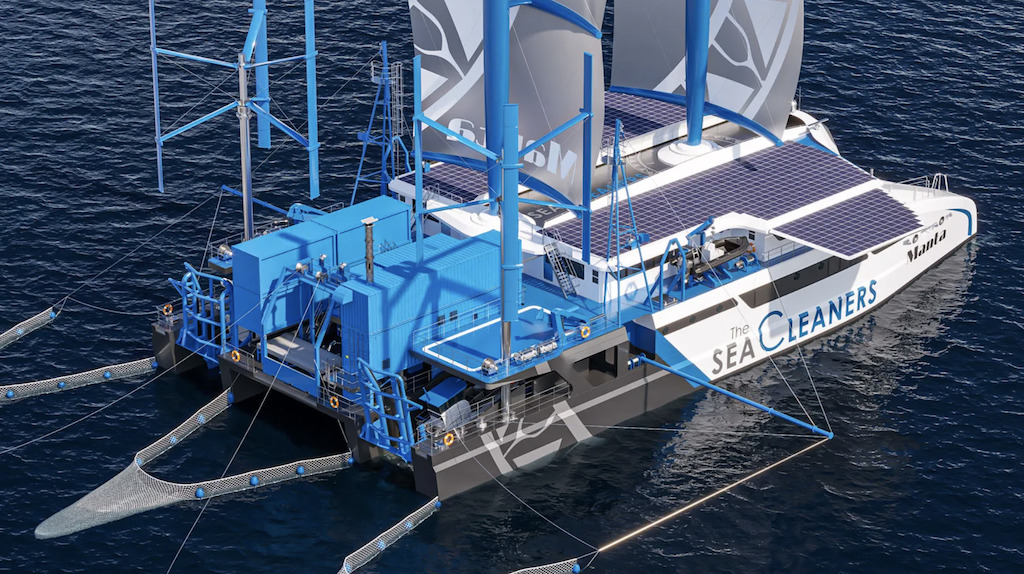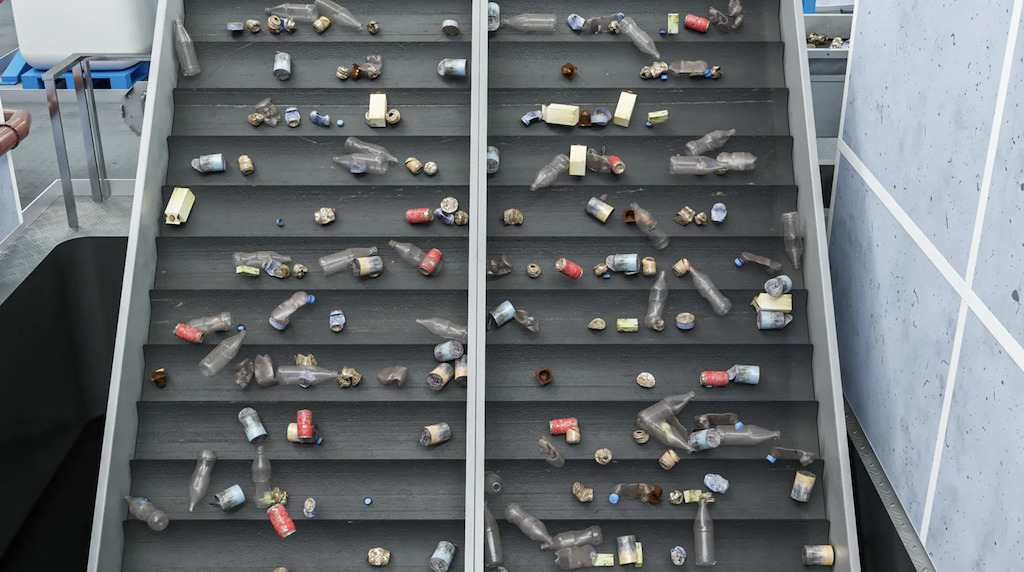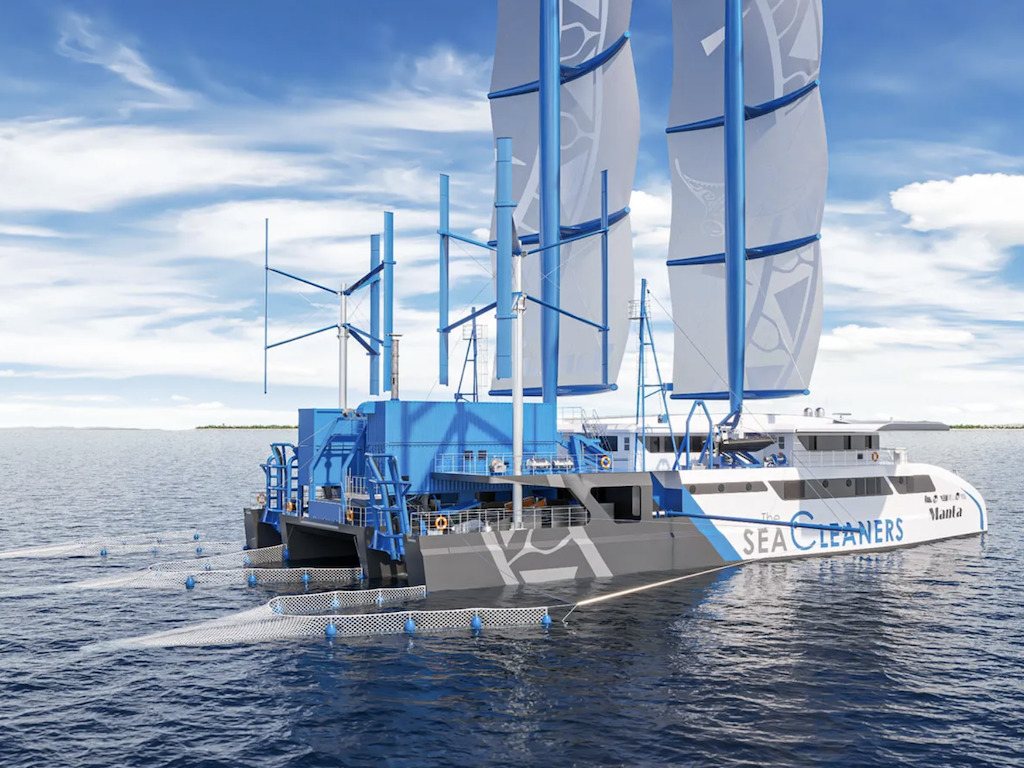‘Manta Boat’: Giant Plastic-Eating Renewable-Powered Vessel Inspired By Ray Set To Clean Up Ocean Debris
3 Mins Read
A new 56-metre-long Manta sailboat will help fight the ocean plastic pollution crisis with its first-of-its-kind collection and processing capacities. Presented by the environmental nonprofit the SeaCleaners and French adventurer Yvan Bourgnon, the catamaran is equipped with everything from waste-collecting conveyors to microplastic collection “mobulas” and fitted with a hybrid system featuring wind turbines, hydro generators and solar panels.
The brainchild of twenty companies, five research laboratories and the work of the SeaCleaners and Yvan Bourgnon, the new Manta boat is set to be the first plastic-cleaning catamaran able to collect and process huge pieces of debris down to microplastic. Operating autonomously most of the time for 20 hours a day, 7 days a week, the 185-foot hybrid vessel is able to collect anywhere between 1 to 3 tonnes of waste per hour – and will aim to be able to collect as much as 10,000 tonnes annually.
Manta features four collection systems that work together to arm the boat with its impressive ocean-cleaning function to fight against the rising plastic ocean crisis. There’s a real possibility now that plastic will outweigh fish in the ocean by as soon as 2050, and scientists have warned that plastic pollution is so severe that even if we slashed plastic use by 80%, we would still be left with an astonishing 710 million tonnes of plastic left on the Earth to deal with.

These features include waste-collecting conveyors that help bring the debris on board, three floatable collection systems to pick up surface waste, two small multi-purpose “mobulas” to clear macro and microplastics from shallow and narrow waters, and two lateral cranes to pull out huge chunks of floating debris.
Powered by a hybrid system, its 1,500 square metres of sails is supported by electric motors running on renewable energy powered with its on-board wind turbines, hydro generators nad 500 square metres of solar panels.
SeaCleaners says it hopes to be able to select a shipyard to build the project later this year, with an aim to begin launching the Manta by 2024. The boat, which can carry 34 people on board, will operate mainly in Asia, Africa and South America.
During the design process, the organisation sought advice from experts to ensure that the Manta can operate with minimal harm to marine life and biodiversity.
“Respecting animal welfare is an absolute must for us. Our primary motivation for cleaning up the pollution is to protect marine biodiversity, since every year 1.5 million marine animals die from ingestion or strangulation,” said head of scientific operations Eric Le Plomb.
“We have made sure, in the design of the boat, that we have the necessary information on the development of the systems in order to minimise interactions with marine biodiversity.”

The conveyor belts on the Manta, for instance, will have sorting operators to return marine organisms that are accidentally brought up to the water through its wells, while the boat’s floatable collection system are fitted with on-board cameras allows the crew to see whether fish are entering the nets, which themselves installed with hatches to allow them to be easily released.
“We also have a human presence to manage all this, with sorting operators but also professional divers who can intervene and observe the life around the Manta activity,” explained project manager Eve Bourdon.
“They will move upstream of the Manta to remove large pieces of waste that could interfere with our collection systems, but also to ensure that marine life is not disturbed by our operations.”
All images courtesy of the SeaCleaners.




